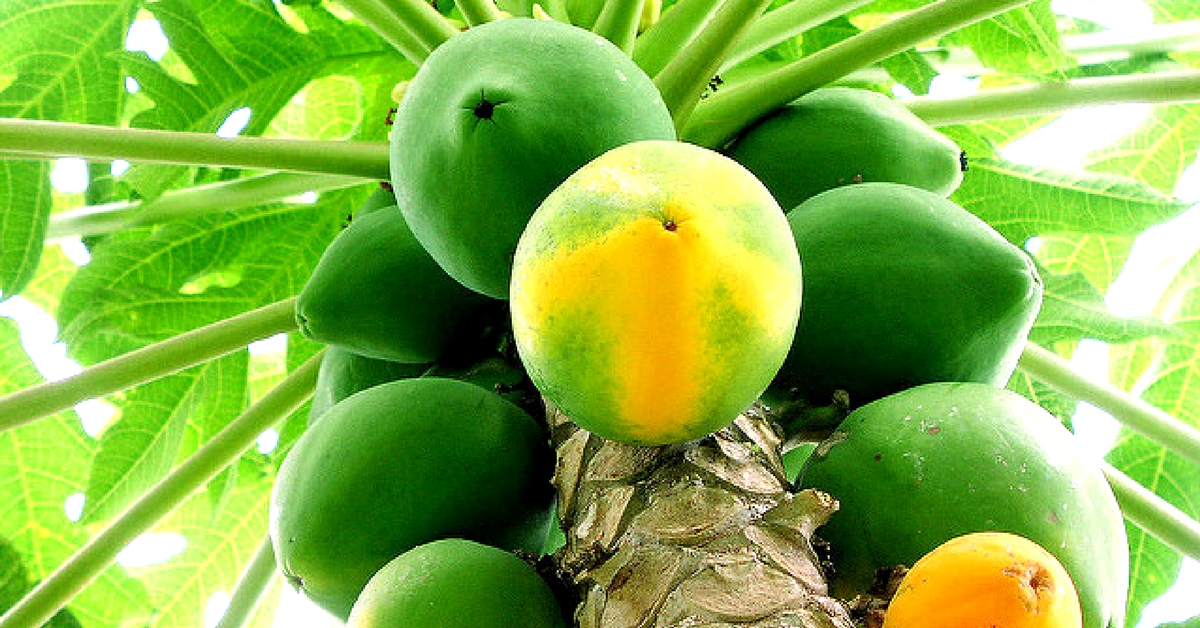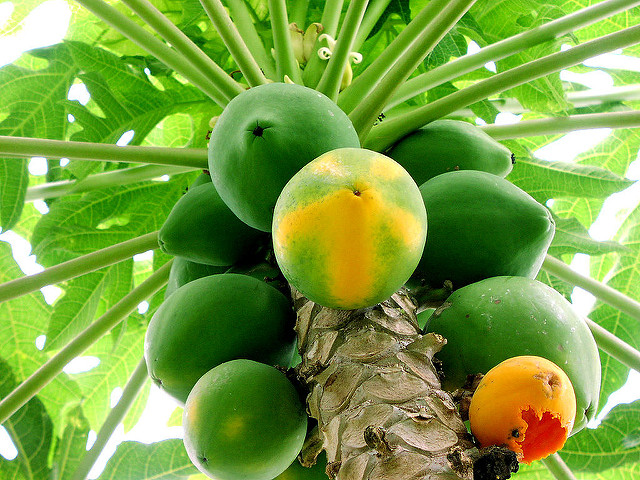Using Cow Dung of Indigenous Breeds, This Farmer Makes Lakhs from Organic Papaya
Through this practice, he was able to expand his farm and is now able to cultivate his crop on 18.5 acres of leased land.

After graduating, K Sakthikumar decided to become an organic farmer a decade ago by raising loans but suffered a loss in the first year itself.
He took 16 acres of land on lease in 2006, where he cultivated drumsticks through organic farming practices. But the area was starved of water as well as labour, resulting in a loss of about ₹8 lakh.
“₹1 lakh on lease for five years. The rest went towards buying drumstick saplings and labour. After a year, I decided to shift to another 4.5 acres lease land nearby. I could remove and reuse the drip lines, but other investment went in vain. The landowner didn’t even return the lease amount for the residual four years,” he told The Times of India.
This was when he cultivated papaya in the new land.

Instead of using cow dung, he bought an indigenous breed of cow. He enriched its dung and urine by converting them into jeevamritham, and panchagavyam reports the publication. Through this practice, he was able to expand his farm and is now able to cultivate his crop on 18.5 acres of leased land.
He now has six acres of papaya, seven of banana, three of watermelon and two or guava cultivated on his land. Some area is also left for grazing cattle.
“Papaya cultivation is highly profitable. About 900 plants are planted per acre. I get an average yield of 50 kg to 60 kg per plant, which is sold to shops in Chennai at 18 per kg. Some fruits weigh up to 4 kg, and some plants yield up to 200 kg,” he told TOI.
He cultivates a Thailand variety of papaya called Red Lady. He can generate an annual profit of ₹3.5 lakh per acre from it. The bananas bring a profit of ₹2 lakh per acre, and watermelon brings ₹1.2 lakh per acre profit.
He has also found a way to sell dry drumstick seeds in the Middle East at ₹300 per kg. All the manure he needs for his land is generated from five indigenous breeds of cows.
These include the Gir variety, which is a native of Gujarat and is a high milk yielding breed. He makes sure the land is rich in minerals and nutrients by rotating his crops.
Sakthikumar has also installed a solar pump for the irregular power supply. He is now an inspiration for some farmers in the region. He got a group of farmers together and told them about organic farming practices. He then developed a market for them by selling their produce to Chennai’s apartment complexes.
From his earnings, he has been able to construct a house for himself and his family, expand his land and buy a housing plot. “Sky is the limit for a farmer who is ready to work hard,” he told TOI.
Like this story? Or have something to share?
Write to us: [email protected]
Connect with us on Facebook and Twitter.
NEW: Click here to get positive news on WhatsApp!
If you found our stories insightful, informative, or even just enjoyable, we invite you to consider making a voluntary payment to support the work we do at The Better India. Your contribution helps us continue producing quality content that educates, inspires, and drives positive change.
Choose one of the payment options below for your contribution-
By paying for the stories you value, you directly contribute to sustaining our efforts focused on making a difference in the world. Together, let’s ensure that impactful stories continue to be told and shared, enriching lives and communities alike.
Thank you for your support. Here are some frequently asked questions you might find helpful to know why you are contributing?


This story made me
-
97
-
121
-
89
-
167













